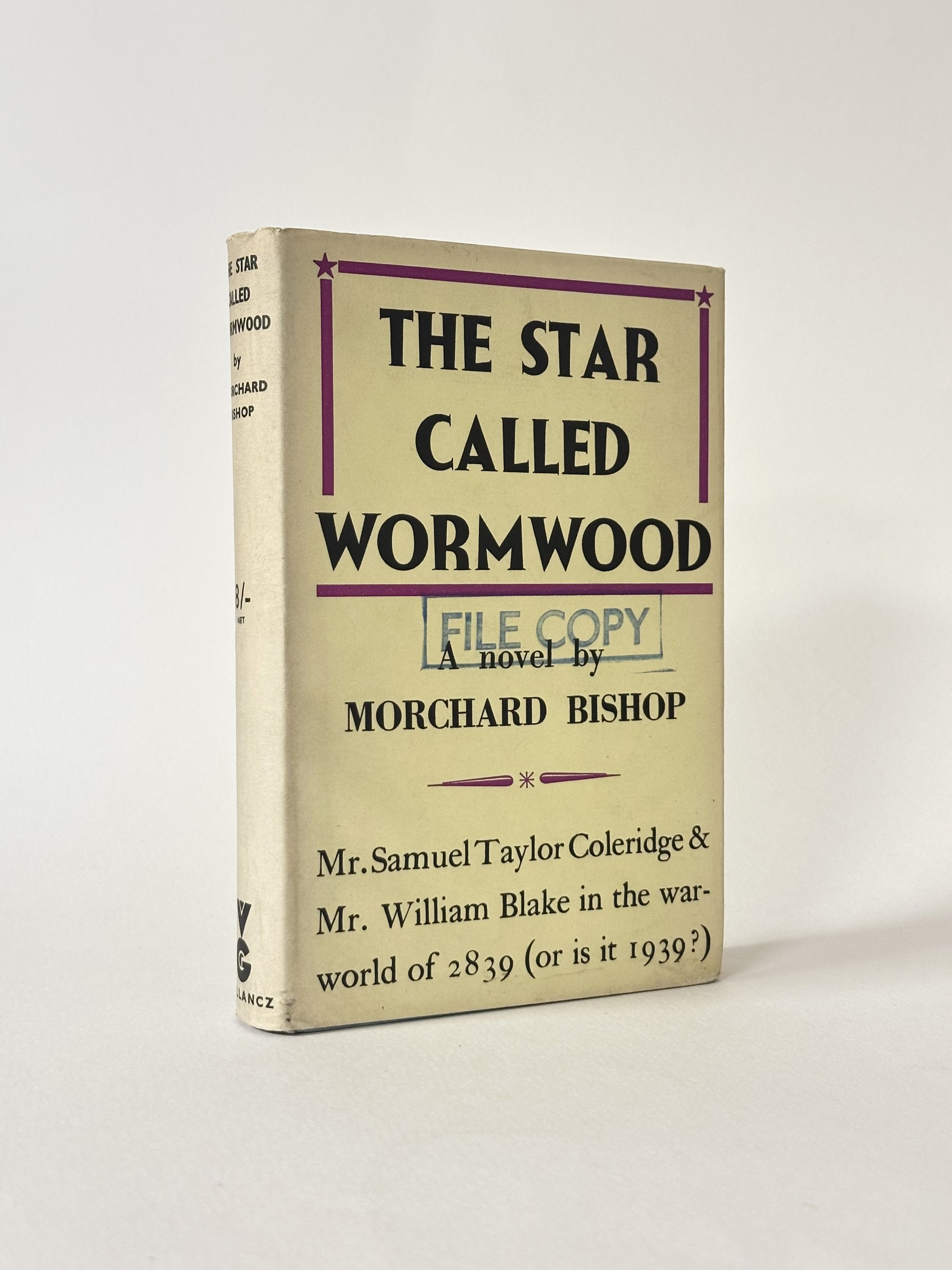 Image 1 of 5
Image 1 of 5

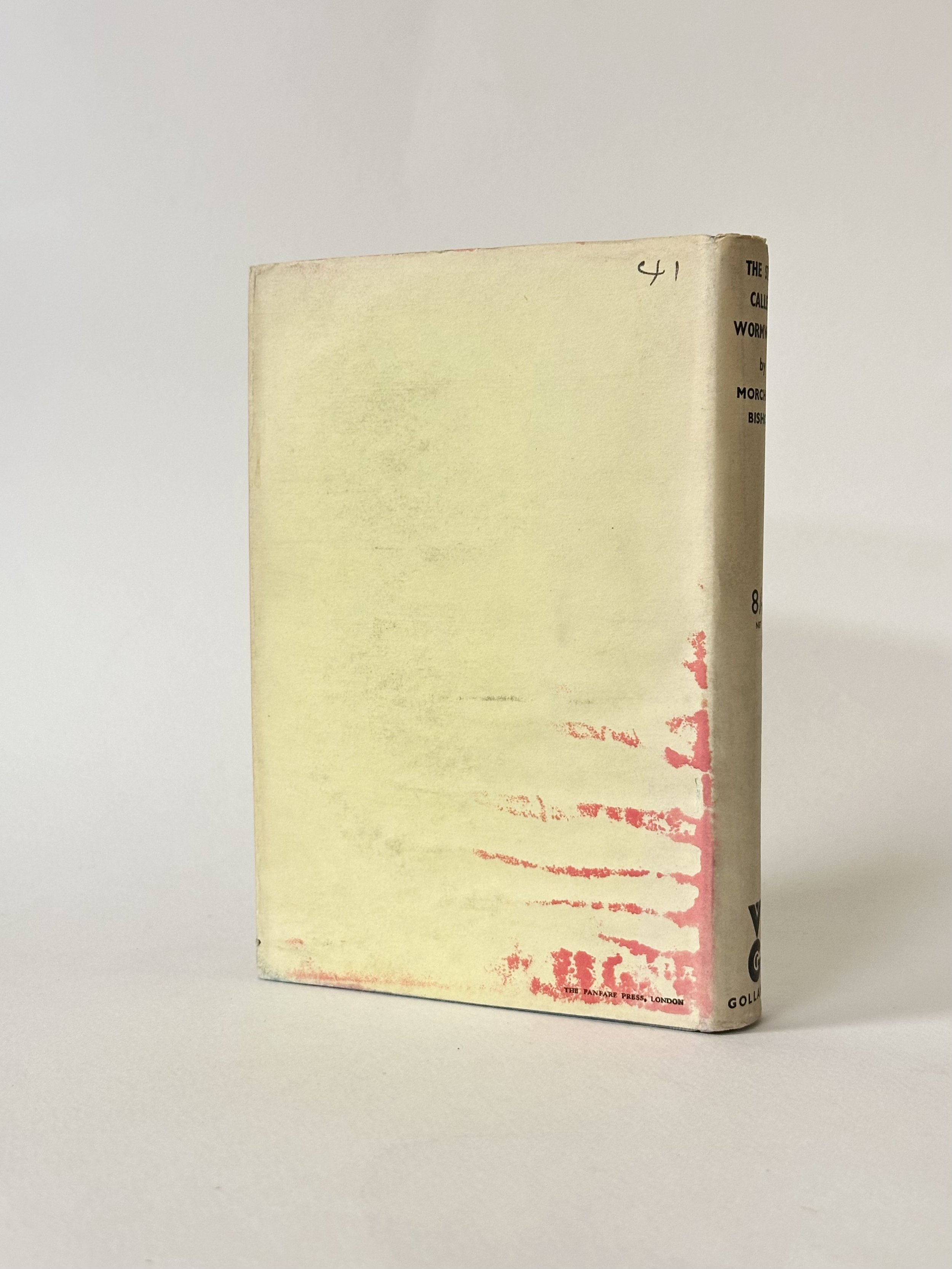 Image 2 of 5
Image 2 of 5

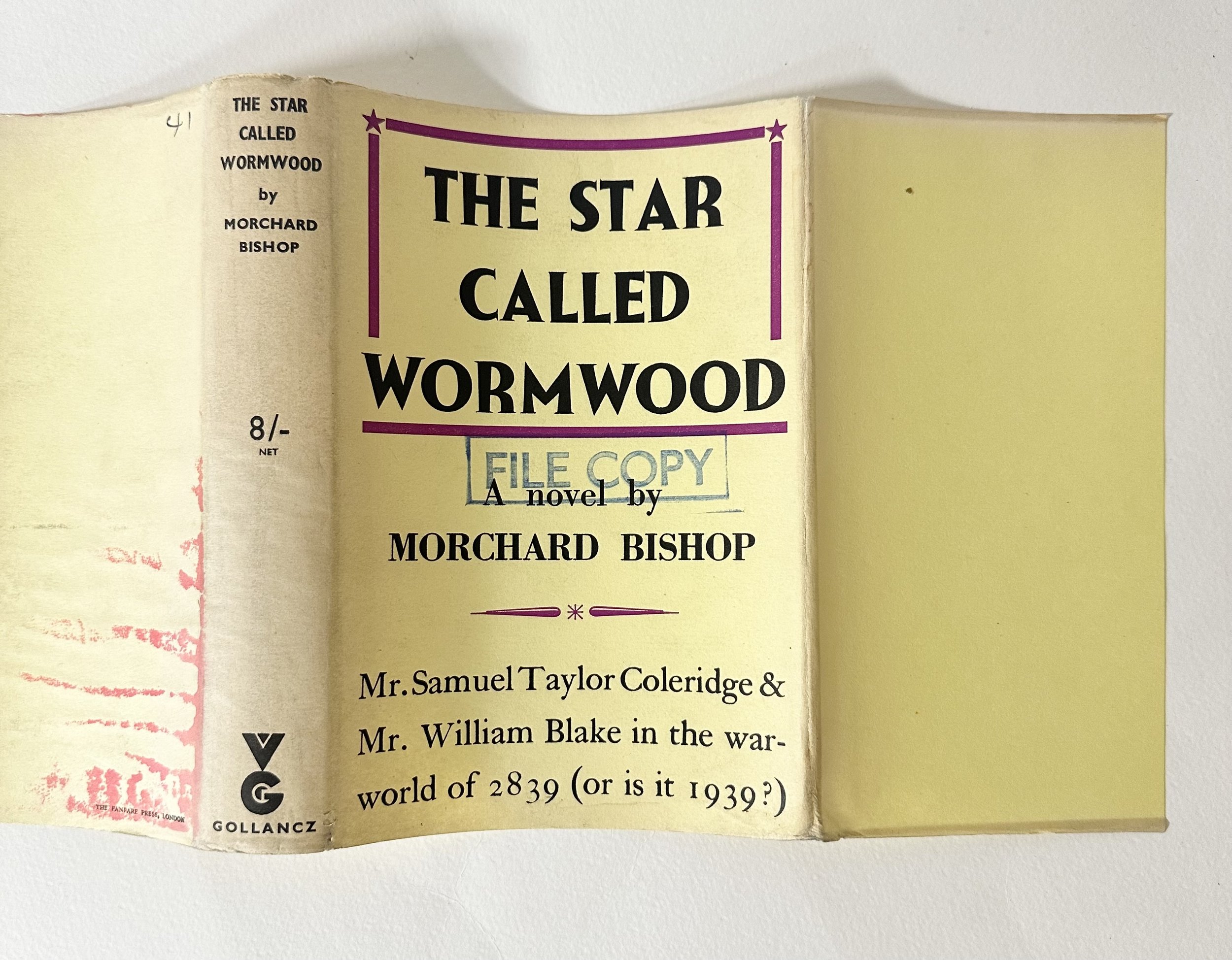 Image 3 of 5
Image 3 of 5

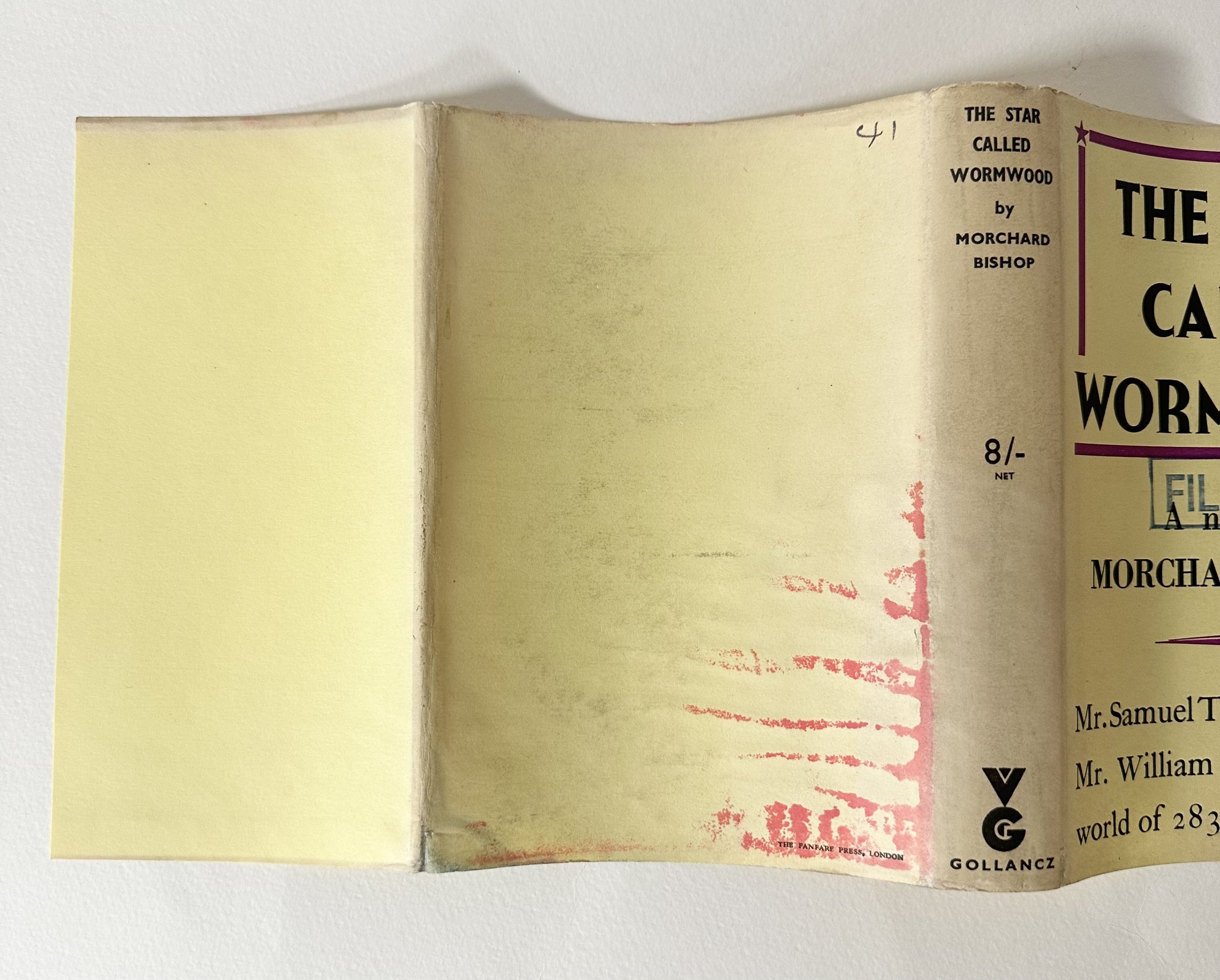 Image 4 of 5
Image 4 of 5

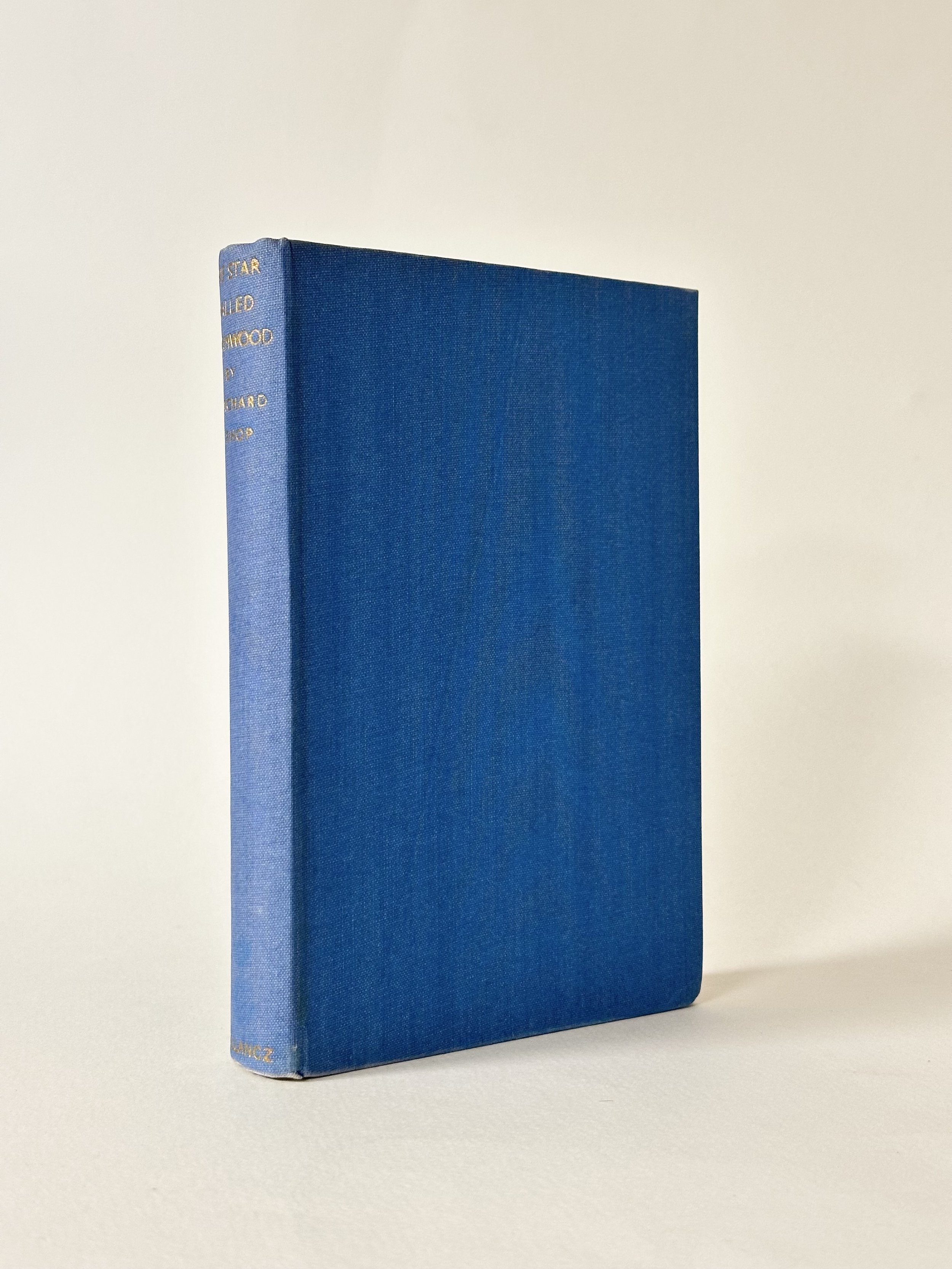 Image 5 of 5
Image 5 of 5






BISHOP, Morchard. The Star Called Wormwood
BISHOP, Morchard. [pseud. of Oliver Stonor]. The Star Called Wormwood: An Investigation of the possible reasons for its Decline and Fall as described in the VIIIth chapter of The Apocalypse. London: Victor Gollancz. 1941. 8vo. First edition and only. Publisher’s blue cloth lettered in gilt to the spine, in the Gollancz yellow dust jacket. Publisher’s file copy with stamp to front panel of the jacket and ‘archive copy’ to title page. A very good copy overall, the cloth clean and bright, the extremities just gently bumped. The binding tight and square the contents mostly clean; some mild stains to textblock top edge and to corners of some leaves. The dust jacket priced 8/- net, gently bumped at extremities, some fading and water staining to rear panel bottom, but a handsome copy nonetheless. Scarce.
The obscure author’s sixth book and certainly one of his most intriguing. Bishop was a pseudonym used by Oliver Stonor, who became an associate of Arthur Machen, John Betjeman and others, and was briefly married to the Irish author, Norah Hoult. The novel itself has a strong and satirical anti-war sentiment which takes time to draw out. It deals with a stable lad who travels back in time, listening in on a wide-ranging conversation between Samuel Taylor Coleridge and William Blake—remarkably, the pair did indeed meet, though the contents of the conversation is unknown. The prose is, like the man, certainly eccentric in the English manner, but appears well ahead of its time.
BISHOP, Morchard. [pseud. of Oliver Stonor]. The Star Called Wormwood: An Investigation of the possible reasons for its Decline and Fall as described in the VIIIth chapter of The Apocalypse. London: Victor Gollancz. 1941. 8vo. First edition and only. Publisher’s blue cloth lettered in gilt to the spine, in the Gollancz yellow dust jacket. Publisher’s file copy with stamp to front panel of the jacket and ‘archive copy’ to title page. A very good copy overall, the cloth clean and bright, the extremities just gently bumped. The binding tight and square the contents mostly clean; some mild stains to textblock top edge and to corners of some leaves. The dust jacket priced 8/- net, gently bumped at extremities, some fading and water staining to rear panel bottom, but a handsome copy nonetheless. Scarce.
The obscure author’s sixth book and certainly one of his most intriguing. Bishop was a pseudonym used by Oliver Stonor, who became an associate of Arthur Machen, John Betjeman and others, and was briefly married to the Irish author, Norah Hoult. The novel itself has a strong and satirical anti-war sentiment which takes time to draw out. It deals with a stable lad who travels back in time, listening in on a wide-ranging conversation between Samuel Taylor Coleridge and William Blake—remarkably, the pair did indeed meet, though the contents of the conversation is unknown. The prose is, like the man, certainly eccentric in the English manner, but appears well ahead of its time.
BISHOP, Morchard. [pseud. of Oliver Stonor]. The Star Called Wormwood: An Investigation of the possible reasons for its Decline and Fall as described in the VIIIth chapter of The Apocalypse. London: Victor Gollancz. 1941. 8vo. First edition and only. Publisher’s blue cloth lettered in gilt to the spine, in the Gollancz yellow dust jacket. Publisher’s file copy with stamp to front panel of the jacket and ‘archive copy’ to title page. A very good copy overall, the cloth clean and bright, the extremities just gently bumped. The binding tight and square the contents mostly clean; some mild stains to textblock top edge and to corners of some leaves. The dust jacket priced 8/- net, gently bumped at extremities, some fading and water staining to rear panel bottom, but a handsome copy nonetheless. Scarce.
The obscure author’s sixth book and certainly one of his most intriguing. Bishop was a pseudonym used by Oliver Stonor, who became an associate of Arthur Machen, John Betjeman and others, and was briefly married to the Irish author, Norah Hoult. The novel itself has a strong and satirical anti-war sentiment which takes time to draw out. It deals with a stable lad who travels back in time, listening in on a wide-ranging conversation between Samuel Taylor Coleridge and William Blake—remarkably, the pair did indeed meet, though the contents of the conversation is unknown. The prose is, like the man, certainly eccentric in the English manner, but appears well ahead of its time.
